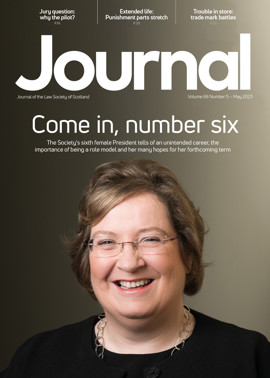Wagatha Christie and Blue Murder at the Tesco Express?

While a long-running drama has brought headlines for trade marks, a recent case has highlighted a changing approach which could lead to an increase in claims for alleged breaches where logos or branding look sufficiently similar.
While the curtain may have fallen on one of the most captivating legal disputes in recent years, it will soon be “curtain up” for the play which recreates the famous “Wagatha Christie” dispute. The producers faced an unexpected stumbling block after it was revealed that Rebekah Vardy’s application to trademark the popular pun had been accepted.
Following the conclusion of her high-profile litigation against Coleen Rooney, Vardy took the commercially savvy decision to seek to trademark the phrase which had, due to the power of social media and the extensive public interest, became synonymous with the court proceedings. It is certainly thought that merchandise which makes use of the iconic pun might allow Vardy to recoup some of the legal fees she has to pay to Rooney, which are estimated to exceed £1,500,000.
Intellectual property can be a key asset, so it is vital to ensure that it is properly protected. Although the law of passing off can provide some limited protection, it is much better to register a trade mark to avoid having to try to prove that passing off has occurred.
Trade marks are governed by the Trade Marks Act 1994. In terms of this legislation, the holder of a registered trade mark has an exclusive right to use that registered mark in the UK in respect of the goods and services which are protected. Trade marks will often apply to only certain types of goods and services – the “Wagatha Christie” trade mark does not cover certain clothing or household items as opposition was lodged to the application by Welspun UK Ltd, which owns towel and bedding brand “Christy”.
Discount wars
One of the main purposes of a trade mark is to avoid any such brand confusion. It is generally accepted that the public should be able to identify different brands easily and distinguish between them without confusion which could be caused by similar names or branding. The recent decision in Lidl Great Britain Ltd v Tesco Stores Ltd [2022] EWCA Civ 1433 highlights the obligation on companies to ensure that their branding is sufficiently distinct.
In 2020, Tesco began using a new logo to display its Clubcard price promotions. This logo consisted of a yellow circle on square blue background with the words “Clubcard Prices” within the yellow circle. Lidl alleged that the use of this logo infringed its trade mark. The two logos are clearly similar in nature, with Lidl’s main branding making use of a yellow circle (albeit trimmed in red) placed on a blue background. In addition to Lidl’s logo containing its name, it also has trade mark rights in respect of the same logo with its name removed, which was referred to in these proceedings as the “wordless mark”. Tesco’s position, which was set out in a counterclaim, was that Lidl had never made genuine use of its wordless mark, therefore it should be revoked on the basis of non-use. Tesco also argued that Lidl had registered a trade mark in respect of the blank blue and yellow logo as a defensive step to attempt to create a monopoly over the branding and prevent any third party from using it.
Lidl made an interim application to the High Court to have Tesco’s counterclaim struck out on the basis that Tesco had not done enough to overcome the presumption that Lidl had acted in good faith when registering the trade mark. However, Tesco successfully appealed the initial decision in Lidl’s favour. As a consequence, Lidl was required to provide sufficient evidence to show that it had not acted in bad faith.
This ruling certainly seems to suggest that the bar for bad faith allegations is significantly lower than had previously been thought. Smith J had ruled in the original decision that the allegation that the applications for the “wordless mark” had been used solely as an attempt to prejudice third parties was “no more than an assertion”. On considering the appeal, Arnold LJ instead found that this was a permissible inference from the facts pleaded. The Court of Appeal also held that a claim which asserts that another party has sought unjustifiably broad protection which could constitute an abuse of the trade mark system must be properly considered on its facts. Accordingly, it was held that Tesco’s counterclaim did in fact have a real prospect of success and so should not be struck out.
Surveys less popular
Another interesting point considered in these proceedings was the use of survey evidence. Parties in trade mark disputes often rely on surveys taken from the public to demonstrate the strength of their trade mark. Although the courts tend not to rely too heavily on these, they will often find them a useful indicator of the extent to which a trade mark is recognised. Recent decisions however have suggested that the courts are taking a stricter approach and are less keen to consider evidence produced by way of public surveys.
This was first properly addressed in Interflora Inc v Marks & Spencer plc [2012] EWCA Civ 1501. M&S purchased the rights to the advertisement word “Interflora” from Google. This meant that when anyone searched for Interflora, the M&S flower delivery webpage would appear as one of the sponsored links. Interflora objected to the use of its name, for which it had obtained a trade mark, on the basis that there was a high chance that customers would confuse the two brands. The court ordered that neither party could produce survey evidence without first obtaining leave to do so. Although the court originally accepted Interflora’s application to refer to information gathered from surveys, the Court of Appeal overturned this decision on the basis that evidence should only be admissible if valuable. Interflora had failed to demonstrate properly the value of the evidence.
Returning to Lidl’s claim against Tesco, Lidl sought to use survey evidence to show what the customer perception of their “wordless mark” was. Tesco objected to this on the basis of (i) the value to the court; (ii) reliability; and (iii) the fact that Lidl had carried out these surveys without first seeking leave of the court. The court held however that the survey evidence was likely to be of real value to the court in assessing the extent of recognition of the trade mark.
Ultimately, Tesco was unable to establish reasonable grounds for making the bad faith allegation. The court was also satisfied that Tesco was guilty of “copying with a view to enhancing the value perception of Tesco’s own Clubcard Prices offering by adopting a getup, in the form of a blue background and yellow circle, which already had a proven association with a strong value proposition (i.e. the Lidl logo) in the minds of consumers”.
Claims outlook
These proceedings highlighted the difficulty in proving an allegation of bad faith, with the court noting that any such claims must be “distinctly pleaded and distinctly proved”. The case also provides interesting commentary on survey evidence, reaffirming the position that requests to lead such evidence must be considered on a case-by-case basis and in light of the facts in dispute. Tesco has advised that it intends to appeal the decision on the basis that there was no deliberate intent on Tesco’s part to copy Lidl’s trade mark, and that while the logos are similar there is a clear distinction between the two. Unless Tesco is successful in appealing the decision, it is anticipated that there will be an increase in claims for alleged breaches of trade marks where the logos, products or branding look sufficiently similar.
Trade marks are crucial for providing brands with protection and are also a valuable marketing tool. Anyone wishing to use the Wagatha Christie phrase commercially in the UK will either have to have permission from Rebekah Vardy or risk a claim for breach of her trade mark. Given the continued interest in the case, and the fact that the play is to start touring later this year, there is potential for there to be significant commercial value in this decision.
Perspectives
Features
Briefings
- Civil court: Spotlight on the Sheriff Appeal Court
- Employment: Must do better – the s 23 approach
- Human rights: Crime, detention and mental health issues
- Pensions: A question of tax
- Scottish Solicitors' Discipline Tribunal: May 2023
- Family: The slide rule of grave risk
- In-house: A route to diversity







